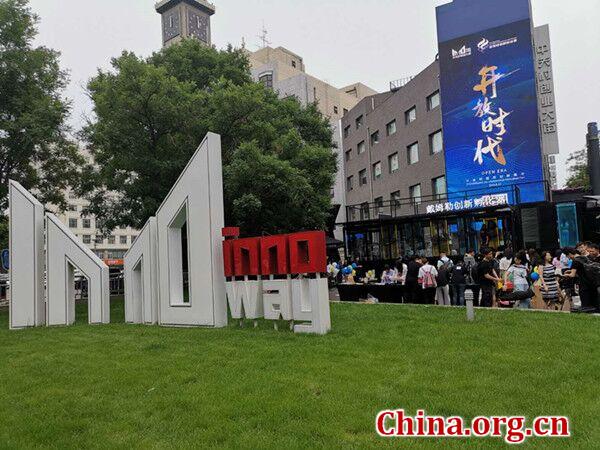Multinational firms join China's innovation endeavors
- By Wu Jin
 0 Comment(s)
0 Comment(s) Print
Print E-mail China.org.cn, June 14, 2019
E-mail China.org.cn, June 14, 2019

The world's leading industrial giants such as the Daimler AG and Airbus, are partnering Chinese tech start-ups, many of which have their registered office in Inno Way, an incubator hub located in Beijing's Zhongguancun area, known as China's Silicon Valley.
The cooperation, riding the tide of China's innovation endeavors, focuses on the idea of flight sharing or flying car sharing to ease traffic congestion in major cities across the world.
Guo Zheng, CEO of Daimler (China) Science and Technology Innovation Co Ltd, said, "Daimler concentrates not only on the acceleration of vehicle manufacturing, but also on the sectors beyond, such as the services provided to car owners, introduction of a sharing economy, the business environment and also the way to make vehicles fly."
Guo made his remarks at a forum entitled "Open Era-the Innovation & Entrepreneurship Festival" staged on June 12 to commemorate the 5th anniversary of Inno Way's establishment in response to the trend of innovation and entrepreneurship.
The forum was held at a time when a new stage in the scientific and technological revolution led by artificial intelligence, big data and cloud computing is transforming the world, and at the same time, providing solutions to problems, such as traffic jams, overcrowding and pollution caused and intensified by factors including traditional production modes and industrial distribution layout.
According to Luo Gang, CEO of Airbus China Innovation Center, the world's second largest aircraft producer is attempting to reduce carbon emissions by replacing the traditional fuel-based engines with electric ones. Besides, they are carrying out test flights expected to provide a new means of inter-city transport.
Inspired from the ride-sharing platforms spearheaded by Didi and Uber, Airbus is cooperating with small and medium-sized enterprises (SMEs) in China, hoping to keep up with the times based on creative thinking and new technologies.
Nie Lixia, general manager of Inno Way, said big companies were playing a very important role in promoting innovative development.
"The technological support and applications provided by big firms are indispensable for SMEs to grow," Nie said.
From the launch of 13 institutes five years ago, Inno Way has now given birth to 3,451 start-ups. The incubator is no longer a highway for offices, administrative service windows and cafes only; rather, it has become an ecosystem expected to boost innovation-centered businesses and embrace emerging fundamental changes.
Yu Jun, Party secretary of Haidian district committee, said that, from a busy business hub to a tranquil incubator center, Inno Way was becoming increasingly rational in its development as a land of innovation.
According to Yu, it will become an indicator of a new ecosystem formed through the connectivity between the district's high-tech enterprises and prestigious universities in the capital such as Tsinghua University and Peking University.






Go to Forum >>0 Comment(s)